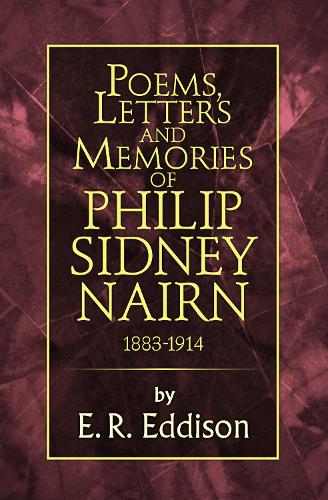
Poems, Letters and Memories of Philip Sidney Nairn
(Paperback)
Publishing Details
Poems, Letters and Memories of Philip Sidney Nairn
By (Author) E. R. Eddison
HarperCollins Publishers
HarperCollins
25th August 2014
United Kingdom
Classifications
General
Non Fiction
821.912
Physical Properties
Paperback
400
Width 129mm, Height 198mm, Spine 25mm
270g
Description
A poignant memoir and tribute to the Oxford poet Nairn
by the author who went on to create The Worm Ouroboros
and the groundbreaking Zimiamvia fantasy trilogy.
Eric Rucker Eddisons first book, originally published privately in hardback during the First World War, is a poignant memoir and tribute to the Oxford poet Philip Sidney Fletcher Nairn, whose work was so inspired by his Scottish ancestry, life in the Lake District, and his subsequent travels across Asia.
This first official paperback edition includes a poignant and evocative biography, a dozen photographs, and more than 50 of Nairns poems, and marks the centenary of his untimely death in Kuala Lumpur in May 1914, aged just 30 years old.
Reviews
Eddison is unequalled in the vigour, the vividness, and the passionate intensity of his imagining, the brooding sadness that underlies it, and the magnificence of his language a truly strange and wonderful fantasy world. Ursula K. Le Guin
The greatest and most convincing writer of invented worlds that I have read. J.R.R. Tolkien
A new literary species, a new rhetoric, a new climate of the imagination. C.S. Lewis
Author Bio
Eric Rucker Eddison was born in Adel, England, in 1882. His parents encouraged his spirited imagination. Boyhood days spent reading and adventuring in the northern English countryside with his constant companion, Arthur Ransome, provided rich material for his novels. Eddison was twice honoured, receiving the Order of St. Michael and St. George (1924) and the Order of the Bath (1929) for public service with the Board of Trade. His writings include the first complete translation of the Icelandic epic, Egils Saga; the novels The Worm Oroboros and Stybiorn the Strong; and the trilogy Zimiamvia, including Mistress of Mistresses, A Fish Dinner in Memison, and the final book, The Mezentian Gate, which was left unfinished when he died suddenly of a stroke in 1945.
